Found 19 Results
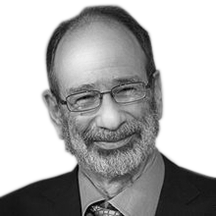
Alvin Roth
Upon being announced that he is to receive the 2012 Nobel Prize in economy, the first thing Alvin Roth chose to do, was to take a shower. Roth, whose friends refer to as having “a most unusual mind”, assumed that in the next couple of days the hustle around him won’t allow him to enjoy a relaxing shower. So he made a rational decision. Well, he should know. Prof. Alvin Roth is an expert in decision making, the games theory and markets studies.
He dropped from high school when he was 16, which probably did not make his parents very happy. However he sure made it up to them when, at the young age of 23, he received his doctorate from Princeton, and published his first book at 28.
Unlike many of his colleague scientists, Prof. Roth is not isolated in his ivory tower. He loves having people over, always surrounded with students and is best known for his large, attractive Passover Seder dinners.
Roth is an expert in balance between needs and wishes. His study is applied in various fields: a system that finds matches between donors and kidney patients; match making between hospitals and interns; match making for marriage, to name a few.
So does he have a secret to a happy marriage? If you are men – always make sure your wife is slightly happier than yourselves!
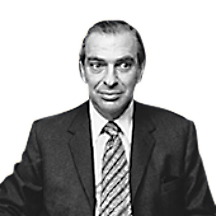
Arrow Kenneth
Kenneth Arrow was born in New-York in 1921. He was awarded the 1972 Nobel prize in economic sciences “for his pioneering contributions to general economic equilibrium theory and welfare theory”.
Arrow concentrated in his studies on the social implications of economical developments.
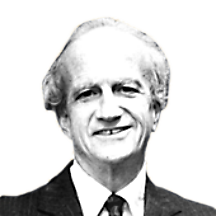
Becker Gary
Gary Becker was born in 1930 in Pennsylvania, USA. He studied economics at Princeton and Chicago universities.
Becker’s rigorous economic reasoning reveal the rational component involved in complex human behavior; by doing so, he has altered the understanding of human action in diverse areas such as discrimination, marriage, crime or drugs addiction.
In 1992, Gary Becker was awarded the Nobel prize in economics “for having extended the domain of microeconomic analysis to a wide range of human behavior and interaction, including non-market behavior”. Becker’s work has had a significant theoretical and practical impact in social sciences, especially sociology, criminology and demography.
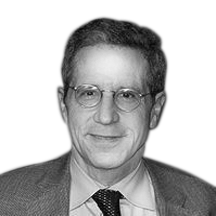
Eric Maskin
The Jewish past stories are full of famous heretics, Baruch Spinoza being the best known. However, Jewish heretics live among us today! If you don’t believe it, read about Prof. Eric Maskin.
Maskin is a Jewish economist who taught in Princeton and lived in the house of Albert Einstein until 1955. He is scared of nothing, not even defying God.
Most people are misled to believe that to be religious is to believe in some Metaphysical grumpy entity with a long tangled beard, who is just waiting to send you to hell if you mixed some cheese into your burger. But the truth is, that religion’s basic definition is absolute faith in a superhuman order.
take for example the omnipotent God of capitalism – the free market. an adherent capitalist believes that no one and nothing may intervene in the free market – not even the government. Maskin, however, asserts the opposite – not only the government may intervene – in some cases it must do so. According to Maskin, the free market is indeed strong, but does not have divine powers. his models proved that totally free, unrestrained market lead to extreme inequality and enormous gaps between the rich and the poor. Governmental intervention is therefore essential to reduce damages.
however, unlike Spinoza, who was excommunicated by the 17th century Jewish community of Amsterdam, Maskin gained respect and recognition worldwide, and won the 2007 Nobel Prize in economy. It’s not enough to be a genius – you also need to choose to nice era to be born at.
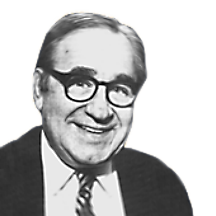
Fogel Robert
Robert Fogel was born in 1922 in New-York. He received his Ph.D from Johns Hopkins University in 1963. He taught, most of his years, in the University of Chicago.
In 1993, Robert Fogel was awarded the Nobel prize in Economics, jointly with Douglas North “for having renewed research in economic history by applying economic theory and quantitative methods in order to explain economic and institutional changes”.
His most controversial research addressed the economic aspect of slavery. His conclusion, after a very precise and comprehensive analysis, was that slavery was ended not because it became inefficient but because it was morally repugnant to the American public opinion.
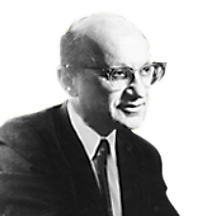
Friedman Milton
Milton Friedman was born in the United States of America in 1912.
He received the 1976 Nobel prize in the economic sciences, “for his achievements in the fields of consumption analysis, monetary history and theory and for his demonstration of the complexity of stabilization policy.”
Friedman believes that a free market, operating without government intervention, is necessary for constant economic growth. “The individual’s will to succeed,” he said, “is the engine of American capitalism.”
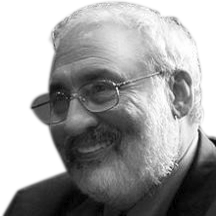
Joseph Stiglitz
Adam Smith’s “The Wealth of Nations” was published in 1776 and challenged the era’s conventions about economy. His main thesis was that should individuals will act purely on self-interest, general wealth will prosper. This fundamental metaphor in Smith’s work is called “the invisible hand”.
For over two centuries this was the basic economic theory, notwithstanding the opposing socialist theory by Karl Max. Then, in the 20th century, Joseph Stiglitz came along and dared to challenge Smith’s approach. Stiglitz asserted that Smith’s economic theory fitted the 18th century, but certainly not modern economy.
These are Stiglitz’s main arguments:
In order for the invisible hand principle to work, a full disclosure of information is needed from both side of each deal, selling or buying. However as modern economy is growing more information based, it is more likely for an a symmetry regarding the amount of information at the hands of each side. For example, the car seller might know that the car is damaged and not reveal this knowledge to the potential buyer. The flat owner may not share it with the tenant that the neighbors are loud musicians, inspired during wee hours only. Surely, you get the picture.
Already at the age of 27, Stiglitz received his prestigious doctorate from Yale. He developed economic models and theories that aimed at solving the information a-symmetry problem, and was awarded a Nobel Prize in economy in 2010. His work contributed to the reduction of wage gaps, raising minimum wage, increasing government intervention and reducing globalization.
Stiglitz also predicted the great financial crisis of 2008.
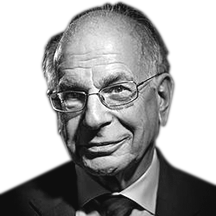
Kahneman Daniel
Ever since Daniel Kahneman was a child, his mother’s words echoed in his mind: “people are greatly complicated and enormously interesting”. Knowing deep inside, even as a young boy, that moms are always right, he decided to make it his mission to get to the bottom of the human mind, thus he studied psychology. Memorizing each and every verse by Freud & co., and after receiving his doctorate, he narrowed it all down to one fundamental question: why do people make the choices they make?
Kahneman and his partner, Amos Tversky ran hundreds of researches, all of which yielded the same outcome: people’s decisions are based on almost everything but rationality: anger, disappointment, optimism, envy, dignity. His revolutionary studies focused on Behavioral Economics. In simple words: what goes on in our minds when we shop? Kahneman demonstrated how at the shopping process, the price of a products is not at the top of our considerations. An old friend we ran into before entering the store; a few tough words from the boss the day before; or a product that some else standing next to us was buying – to name just a few factors – might effect our choices.
In 2002, the Swedish Nobel Committee decided to award Kahneman the prize, even though he never even took one introduction course in economy.
After receiving the award, Kahneman said that the prize committee’s irrational choice proves his theory best: Always listen to mom!
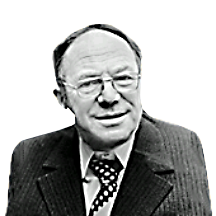
Kantorovich Leonid
Leonid Kantorovich was born in Russia in 1912.
He received the 1975 Nobel prize in economic sciences “For his contribution to the theory of optimum allocation of resources.”
Kantorovich succeeded in developing his brilliant theory, and in leading the way to economic reform in the Soviet Union from within the severe political restrictions of Marxist dogma.
Leonid Kantorovich passed away in 1986.
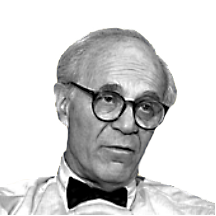
Klein Lawrence
Lawrence Klein was born in 1920 in the United States of America.
He received the 1980 Nobel prize in economic sciences “For the creation of econometric models and for their application to the analysis of economic fluctuations and policies.”
Klein supported, in theory and practice, the combination of government intervention and the act of the individual free will.
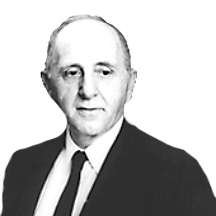
Kuznets Simon
Kuznets was born in Kharkov, Ukraine, in 1901. He emigrated to the United States, and was awarded his doctorate in economics from the University of Columbia in 1926. He was a member of the National Institute for Economic Research and at the same time served as professor of economics at Johns Hopkins and Harvard universities.
Simon Kuznets was awarded the Nobel prize for economics in 1971 “for his empirically founded interpretation of economic growth, which has led to new and deeper insight into the economic and social structure and process of development.”
Kuznets is thought to be one of political economics’ chief historians. He studied economic growth from the middle of the nineteenth century, while revealing the amazing complications of economic periodicity. Kuznets also defined national income and the methods he developed are in use the world over.
When he died in 1985, Kuznets was eulogized by the eminent economist John Kenneth Galbraith, who said, “When we talk about gross national product, national income, their components and the policies leading up to them, we are talking about structures created by Kuznets”.
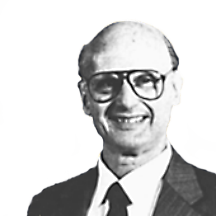
Markowitz Harry
Harry Markowitz was born in 1927 in Chicago. He received his Ph.D. in economics at the University of Chicago and has subsequently combined successful academic and business careers.
In 1990, Harry Markowitz was awarded the Nobel prize in economic sciences, for the development of the portfolio selection theory.
Markowitz’s studies have influenced the entire world of finance and made him a key figure in contemporary investment research.
According to Markowitz, investors should not only select portfolios that maximize expected profit, but should consider the variance of the return in order to protect their investments in a risky and uncertain market.
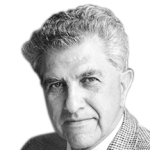
Merton Miller
A genius is someone who is able to – a simple explanation to a complicated issue. How then would you call someone who managed to simplify an economic theory and at the same time make us want to order pizza?
A genius is someone who is able to – a simple explanation to a complicated issue. How then would you call someone who managed to simplify an economic theory and at the same time make us want to order pizza?
Miller claimed that the value of a firm is unaffected by how that firm is financed, much like the size of a pizza is unaffected by the number of slices we divide it to.
He was born in 1923 in Boston to an educated Jewish family and graduated from Harvard university. He taught in Chicago university for over 40 years.
In 1990 he was awarded a Nobel Prize in economy. He died seven years later, leaving hundreds of followers who maintained his heritage: logic, truth – and surprising metaphors about delicious pastries.
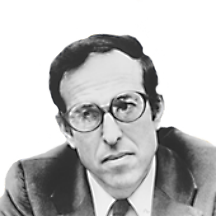
Modigliani Franco
Franco Modigliani was born in 1918 in Rome, Italy. He started studying economics by chance after winning the first prize in a national competition for university students, where he was asked to write an essay about the effects of price control. The Anti-Semitic atmosphere in Italy prior to World War II caused Modigliani to decide to emigrate to USA. In 1944 he received his PhD for Economics. He joined the staff of the University of Illinois, later he moved to the Carnegie Institute of Technology and finally to M.I.T, where he became a professor of economics and finance.
Franco Modigliani was awarded the 1985 Nobel prize “for his pioneering analysis of saving and financial markets”.
Modigliani contributed to established tools for evaluating the value of a company, capital price, the effect of taxes and others. These models marked a milestone in the modern theory of finance.
He developed mathematical formulations of the the Keynesian model. As a neo-Keynesian economist, Franco Modigliani believes in the real effect of money on the economy and that, under certain conditions, an increase of government budget can have a positive effect against economic depression.
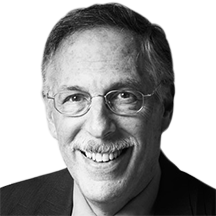
Peter Diamond
Imagine a world in which unemployed can go to the “Jobmart”, pull a job from one of the shelves, check out and simply start working the next day. What a joy!
Now picture this: world peace, each and every one of us is fulfilled, satisfied, find the perfect spouse, and live in prosperity with no worries or pain, no troubles nor diseases until their peaceful death at 120 years old.
This is exactly the imagination’s failure. Should all this come true – we wouldn’t need imagination at all, won’t we?
On the other hand, imagination generates metaphors. “Jobmart”, for example, is a wonderful metaphor, that helps us understand why Prof. Peter Diamond was awarded the Nobel Prize in Economic Sciences in 2010.
Here’s the main idea: assuming no money actually grows on the trees, you are not related to the queen of England and you never were lucky enough to win the lottery – you most likely had at least once to look for a job. Diamond defined the labor market search as a category in finances called “searching market”. Firms do not really shop for employees on the shelves of supermarkets, not do employees shop for positions this way. It takes a long complicated expensive procedure in which one has to find the other.
Diamond was born to a Jewish family whose ancestors came from Eastern Europe to the U.S.A. in the late 19th century. He developed models depicting the processes of labor searching, and decisions making of both employers and employees. The models attempt to answer questions such as why unemployment reaches a certain level at a specific period. How does government policy, such as the distribution of benefits or social insurance affect levels of unemployment?
So, it you are looking for a job, take a look at Diamond’s models – they’re diamonds forever.
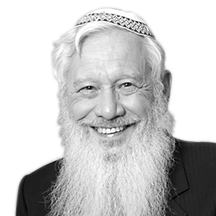
Robert Aumann
What would you do if you were in Abraham’s place? God has just ordered you to bind and kill your only son. You’re facing quite a tough dilemma, right? If you disobey, you defy God, but if you do obey, you will live a lifetime of guilt. OY.
If Prof. Aumann, an expert in strategies and decisions making, who was awarded the Nobel Prize in economic sciences in 2005, was there advising Abraham, he would probably say to him “go for it”, because it is likely that if you are willing to take the challenge, you won’t actually have to take it after all. Paradoxically, it was Abraham’s determination to kill Isaac that saved Isaac.
The paradox is also demonstrated in the “Blackmailer Experiment”: Two men are placed into a room with a suitcase containing $100,000 of cash. The owner of the suitcase offers them the following: “I’ll give you all the money in the suitcase, but only on the condition that you negotiate and reach an agreement on its division.”
The rational person to his friends: “you take half the amount, I’ll take the other half, and each of us will go away with $50,000.” To his surprise, he refuses and demands to take 90,000$. Finally he realizes that the only way for him to leave the room with any money is to surrender to the blackmail.
The blackmailer paradox is just but one principle of the game theory, a field in mathematics dealing with rational behavior of many factors and interests.
Prof. Israel Aumann was born in Germany in 1938. His family escaped Nazi Germany at the last moment. He is a religious man, who believes that the game theory can help us settle almost any conflict: matchmaking, environment, and even the Israeli-Palestinian war. What an optimist bright man!
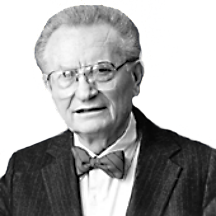
Samuelson Paul
Paul Samuelson was born in 1915 in the State of Indiana. He studied at Harvard University and thereafter at the Massachusetts Institute of Technology, where he became a research lecturer from 1940. In 1948/49, he headed a presidential task force on American public welfare and also served as economic advisor to presidents Kennedy and Johnson.
In 1970, Paul Samuelson was awarded the Nobel prize for economic sciences “for the scientific work through which he has developed static and dynamic economic theory and actively contributed to raising the level of analysis in economic science”.
As a theoretician, Samuelson was involved in all branches of economics. The first of his many publications was the book “Foundations of Economic Analysis” in which he presented economics in the form of mathematical models. He was also a prominent and talented educator and his book “Economics” has been translated into 80 languages and has reached millions of readers all over the world.
Paul Samuelson favors a reasonable amount of government intervention in the economic marketplace, but feels it should not lead to disruptions or overly extensive limitations. He believes that the government can best influence the economic climate through its budget and monetary policies.
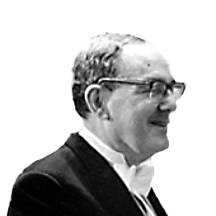
Simon Herbert
Herbert Simon was born in the United States in 1916.
He was awarded the Nobel prize for economics in 1978, “for his research in the field of the decision-making processes in economic organizations.”
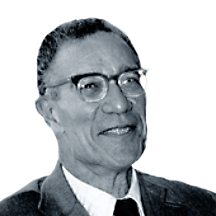
Solow Robert
Robert Solow was born in Brooklyn, New-York, in 1924. He received his Ph.D in economics at Harvard University in 1951 and subsequently joined the Massachusetts Institute of Technology.
Robert Solow was awarded the 1987 Nobel prize in economic sciences, “For his contributions to the theory of economic growth.”
He developed a model that combines capital and labor as determinants of market growth. This analysis, together with his study on capital structure and vitality, have become indispensable in contemporary economics.

free text
Select a Nobel category:
- Chemistry
- Economics
- Literature
- Medicine
- Peace
- Physics
Select first letter of winner's name:
- A
- B
- C
- D
- E
- F
- G
- H
- I
- J
- K
- L
- M
- N
- O
- P
- Q
- R
- S
- T
- U
- V
- W
- X
- Y
- Z
Search Results
Found 0 Results
No search results

region on map
